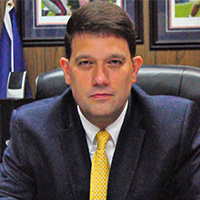Hickory Flat Juvenile Law Lawyer, Mississippi
Sponsored Law Firm
-
 x
x

Click For More Info:
-
Bryan Law Firm, PLLC
5699 Getwell Road Build S Suite 1 Southaven, MS 38672» view mapDivorce & Family Law Where Every Client Matters
Let Bryan Law Firm, PLLC handle your Family Law, Estate and Criminal Defense needs today!
800-925-5121
Not enough matches for Hickory Flat Juvenile Law lawyer.
Below are all Hickory Flat Criminal lawyers.
Joseph Anthony Murphy
✓ VERIFIEDAccident & Injury, Felony, Car Accident, Wrongful Death, Animal Bite
Dedicated to getting the BEST results for each case!
Joseph Murphy is a practicing lawyer in the state of Mississippi.
Brent McBride
✓ VERIFIEDCriminal, Estate, Divorce & Family Law
W Brent McBride is a practicing lawyer in the state of Mississippi.
Tommy W. Defer
✓ VERIFIEDAccident & Injury, Divorce & Family Law, Criminal, Estate, DUI-DWI
The Law Office of Tommy W. Defer was established in December 2003, and is located in the City of Water Valley, Mississippi (just 20 miles South of Oxf... (more)
J Keith Treadway
Accident & Injury, Criminal, Wrongful Death, Wills
Status: In Good Standing Licensed: 30 Years
 Kacy Bryan Southaven, MS
Kacy Bryan Southaven, MS AboutBryan Law Firm, PLLC
AboutBryan Law Firm, PLLC




